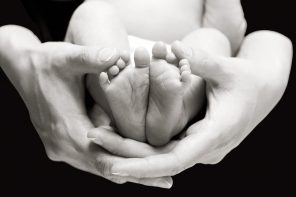We’ve all heard about suffering for beauty. What about suffering for a baby?
Pregnancy is no walk in the park, but it’s typically easier to conceive a baby naturally earlier than via technology later. According to the Fertility Authority website, “Women undergoing infertility treatment report the same level of stress, anxiety, and depression as women who have cancer, HIV, or heart disease.”
In spite of that, increasing numbers of women are being lulled by the dulcet sounds of fertility treatments. As they pursue high-flying careers, women delay child bearing, assuming that family life will always remain an option. After all, women see “Halle Berry, who just had her second child at age 47 . . . [and] Laura Linney, who gave birth to her first child in 2014 at 49,” and assume they can do likewise.
The problem is that “news” coverage of celebrity mothers airbrushes biological reality, much as a Hollywood movie might. IVF is not only exhausting but also quite costly. “A round of IVF costs from $15,000 to $18,000; most women in their late 30s or 40s require more than one round.”
“’The worst [off] is the woman who at 43 wants to talk about egg freezing,’ says [Sheryl] Ross [a Santa Monica OB-GYN with celebrity patients] . . . ‘We in the medical world know that 99 percent of those women used donor eggs. That’s what’s not discussed in the story.’” And yet, in many ways, that’s the crux of the story, the key plot line, if you will.
Amy Klein, who has chronicled her own challenges with infertility on Motherlode,The New York Times’ parenting blog, writes, “Women’s fertility drastically declines with age – beginning at around 32, more rapidly after 37, then precipitously at 40.” But how many women know this and factor it into their life plans?
In a world where most of our desires can be met on-demand, traditional reproduction might seem antiquated to some. And for those individuals, medical practitioners have attempted to bend science to human will. Yet, those human-designed changes remain imperfect:
For a woman over 42, there’s only a 3.9 per cent chance that a live birth will result from an IVF cycle using her own, fresh eggs, according to the American Society of Reproductive Medicine (ASRM). A woman over 44 has just a 1.8 per cent chance of a live birth under the same scenario, according to the US National Center for Chronic Disease Prevention and Health Promotion. Women using fresh donor eggs have about a 56.6 percent chance of success per round for all ages.
So where are the experts who can honestly advise aspiring mothers? The American Congress of Obstetricians and Gynecologists apparently launched a fertility awareness campaign in 2001 but cancelled it after the National Organization for Women protested:
Certainly women are well aware of the so-called biological clock. And I don’t think that we need any more pressure to have kids,’ said Kim Gandy, then president of NOW. In a 2002 op-ed in USA Today, she wrote that NOW ‘commended’ doctors for ‘attempting’ to educate women about their health, but thought they were going about it the wrong way by making women feel ‘anxious about their bodies and guilty about their choices.
Doctors should feel free to share factual information about fertility with their patients. In fact, it would be beneficial, because women could then better plan their lives. It would also help women understand that what they read about celebrity moms is no more real than the stories they roles they see those actresses perform on-screen. To pretend that such fertility fairy tales are common occurrences is cruel.
Why not encourage women to understand their fertility’s natural limits, so that they can work with their bodies, rather than against them? After all, there’s no reason for a woman to suffer through infertility in her 40s, when she might have more easily fulfilled her familial dreams, had she simply started a few years earlier.
Melissa Langsam Braunstein is an independent writer and communications strategist in Washington, DC, as well as a staff writer for the cultural blog Acculturated and a contributing writer for the parenting blog Kveller.
Photo credit: Celine Vignal





